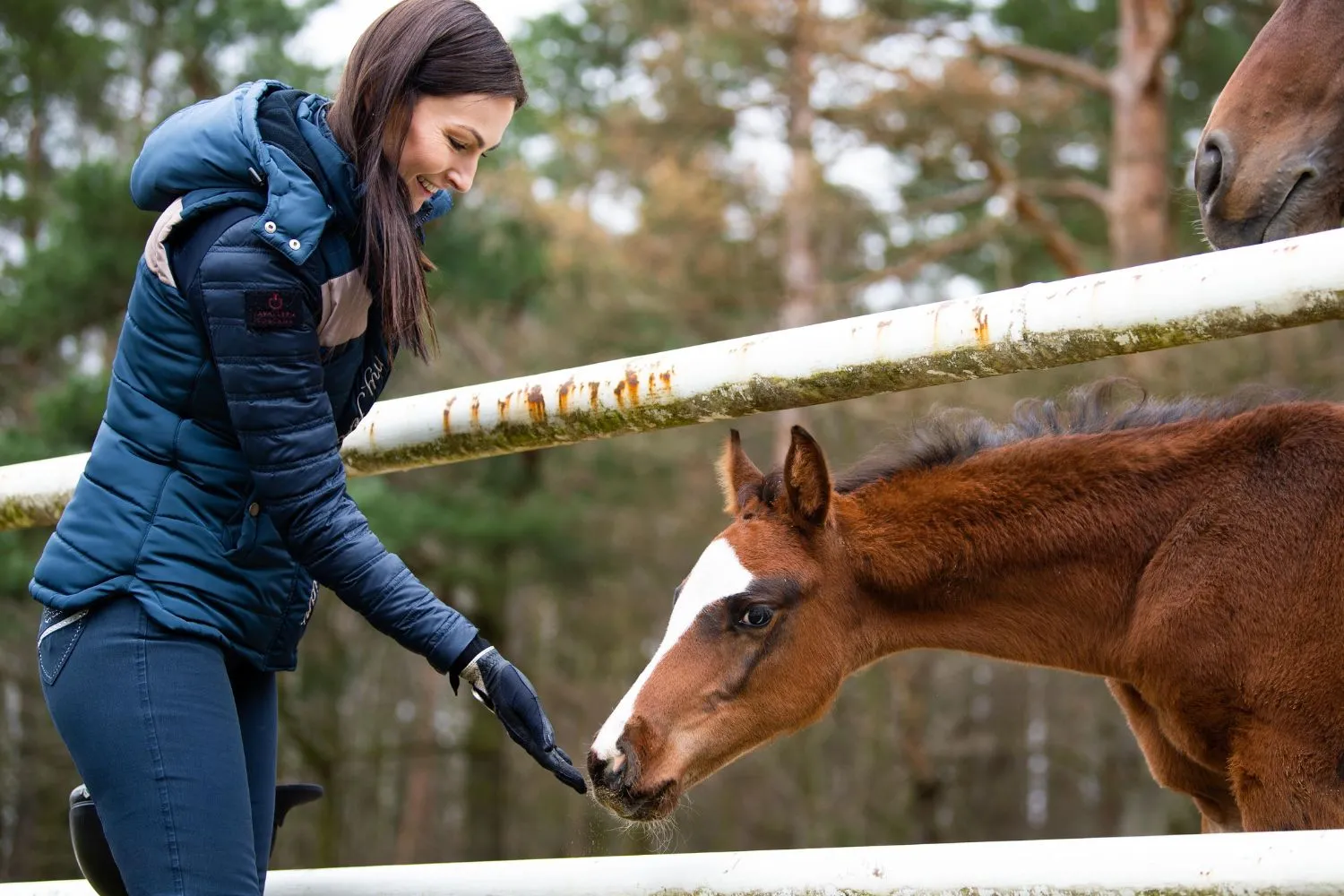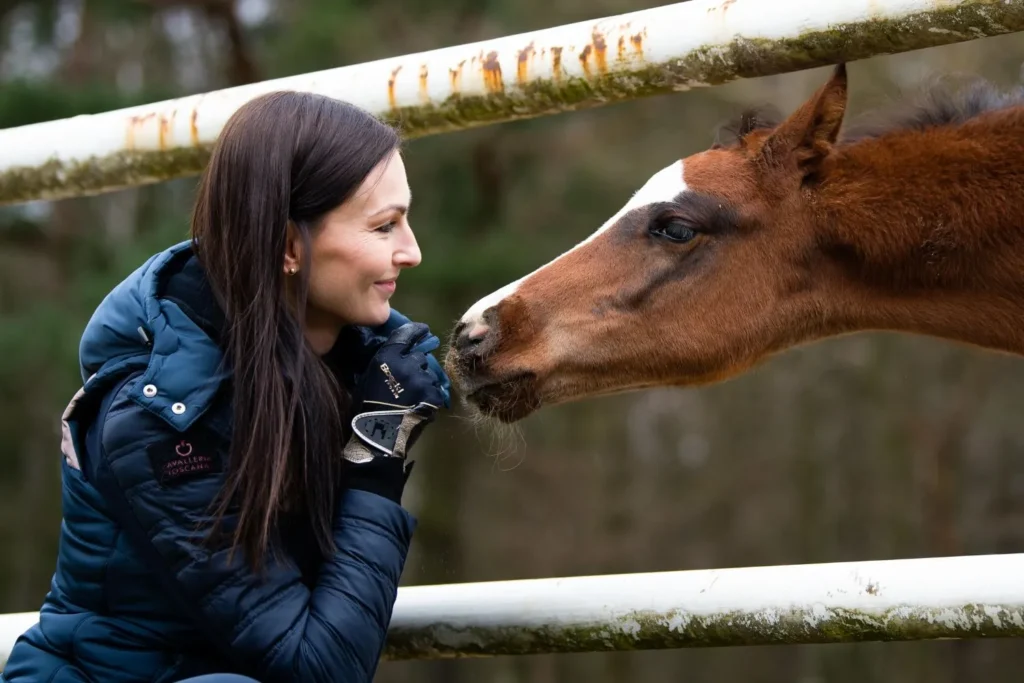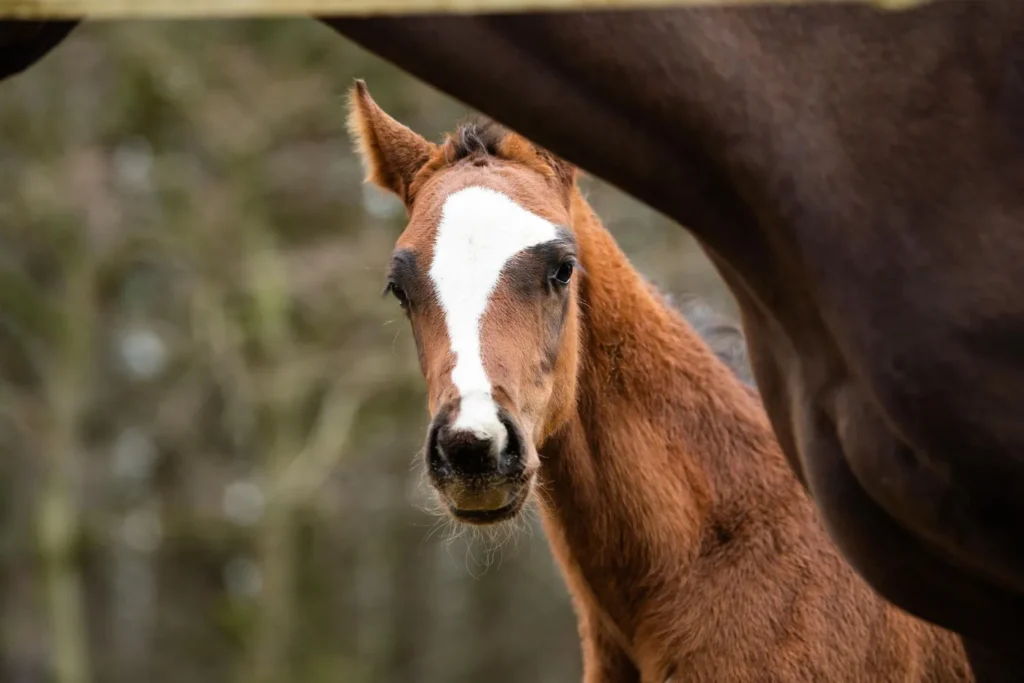Menu

A tiny newborn foal brings life and joy to the stable, but it also comes with many potential challenges. It's important for the foal to have a good start in life, and here we suggest six things you should pay particular attention to during the first and most critical period of the newborn foal's life.
A foal is a major project that begins long before the foal is born. There are many thoughts, worries, and decisions behind this project. It has taken time to select the right stallion, depending on the characteristics desired in the lovely foals. Some breeders may have had trouble getting their mare pregnant and have spent a lot of money on vet bills and semen. Then comes the long wait of 11 months before seeing the result. When the foal is finally born, the wait is over, but then a whole range of new complications can easily arise that we need to keep a close eye on.

Rikke Finshøj is a veterinarian specializing in foals and foal diseases, and she talks here about the topics that are particularly important for horse people and breeders to focus on in the early days with a newborn foal. A normal foal usually stands up within 1 hour, shows a sucking reflex within 20 minutes, and nurses from the mare within 2 hours. The foal urinates within 6-10 hours, and it passes meconium within the first 24 hours. According to Rikke Finshøj, it is important to remember that there is a big difference between being a foal and an adult horse. The little foal breathes 45 – 60 times per minute, and the heart beats 60 – 80 times per minute. The foal's temperature lies between 37.2 and 38.9 degrees Celsius – slightly higher than in an adult horse. To give an example of weight, a warmblood foal should weigh between 45 and 55 kg.
Read also: Step by step: How to ensure a good foaling
It is very important to see if the foal is nursing from the mare. It's fine for it to take a couple of hours before the foal stands up and nurses, but after a couple of hours, it should be underway. Rikke Finshøj explains that foals have a fully developed immune system, comparable to an adult horse, when they are around four months old. Foals receive antibodies from the mare's colostrum, which contains colostrum that enters the foal's system via small specialized cells in their gastrointestinal tract. These cells are only present in the foal for about 24 hours, after which they disappear and never return. Therefore, the first milk is vital for the newborn foal, and the foal should ideally drink one liter of colostrum within the first 6-8 hours, stresses Rikke Finshøj.
You should be extra attentive if you see the foal urinating from the navel. Sometimes it can be a fine stream, other times just a few drops, but it can be a sign that the urachus structure – the canal that connects the urinary tract with the umbilical cord during fetal life – has not closed properly. Therefore, it is important to watch for signs of tenderness, swelling, or warmth, as it may indicate the beginning of a navel infection. The prognosis for such an infection is very poor, so action must be taken immediately, stresses Rikke Finshøj.

The first defecation, which the foal should pass within the first 24 hours, is called meconium. It is a mixture of various glandular secretions, consisting of mucus, bile, and fluids that the foal has been in while inside the uterus and ingested through the digestive system. Meconium is brownish or almost black, has a hard consistency, and you won't be in doubt when it has passed. Some foals may have a lot of meconium, and others only a little, but when the proper milk feces start to come through, you won't be in doubt. The feces typically change to a soft and yellowish texture. Often, everything goes well, and usually, it happens within a few hours, but if the foal cannot push the meconium out of the rectum, it can cause constipation and subsequent pain for the foal. Meconium impaction is a common cause of colic in newborn foals, especially in colt foals.
Read also: The Newborn Foal: This is What You Should be Aware Of
There's nothing more beautiful than little foal eyes looking at you. However, you should be aware that foals are born without the menace or threat reflex. It's a practical reflex that ensures you don't get things in your eye and damage the cornea. This reflex is not innate in foals, and it takes up to 10-14 days for it to be fully developed. Rikke Finshøj, therefore, advises that you can check that the foal has a clear cornea, without signs of sores or cloudy areas.
Regardless of whether you dream of creating a dressage horse, a show jumper, or a leisure horse, the horse needs healthy legs. The leg position can be very problematic if it's not in order. You can't assess it immediately after birth, but within the first few days, you can get an impression of what the legs look like and if it's something that requires a farrier or veterinarian. Rikke Finshøj emphasizes the importance of contacting the veterinarian if you're unsure and that you can benefit from sending some pictures. It's better to contact the veterinarian once too often than once too little.
A little foal takes the time a little foal needs, and you shouldn't be too eager. For example, if you're holding the little one and trying to help it up to the udder, it can quickly make things worse than they are, says Rikke Finshøj. However, you should be aware if you're unlucky enough to have a little foal that deviates from the norm. In that case, you need to act, stresses Rikke Finshøj. These foals are fragile little creatures, and what starts as nothing serious can potentially develop into a huge problem if you don't do something about it immediately. Many breeders prefer to have the veterinarian come out on the first day to check the foal and mare and prevent potential problems so that they can intervene in time if something isn't as it should be.
Read also: 5 Facts About Foals – Do You Already Know Them all Or?